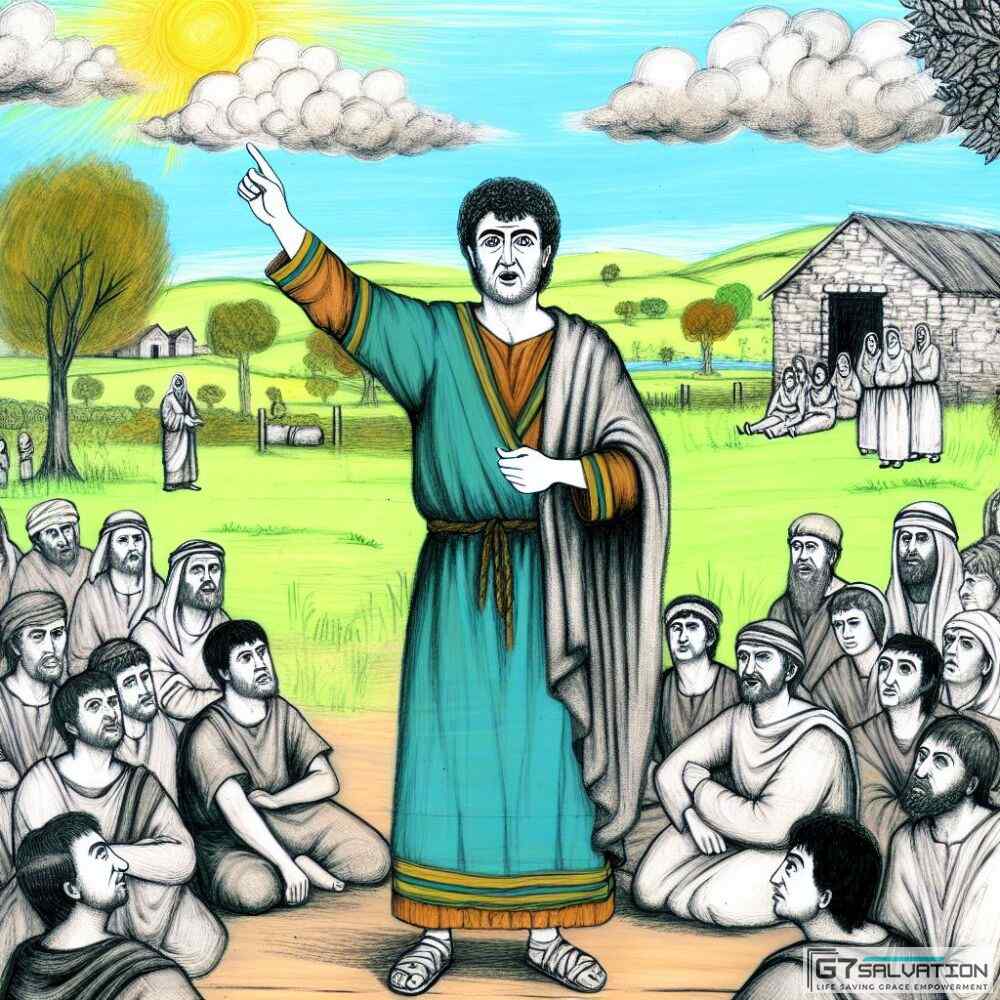The glory of God is a theme woven throughout Scripture, and its manifestation on the Day of Pentecost offers profound lessons for today’s believers.
On that day, the presence and power of God were unveiled in a way that transformed the lives of those gathered, leading to the birth of the Church. Understanding how the glory of God works in our lives today can ignite our faith, unify believers, and spark revival in our communities.
Let’s explore the depths of God’s glory as revealed during Pentecost and discover how we, too, can experience His presence in our everyday lives.
The Unity that Preceded the Glory of God
One of the most striking aspects of the Day of Pentecost is the unity among the believers. They were not just physically gathered in one place; they were spiritually and emotionally united in purpose. This unity was a critical factor in the outpouring of the Holy Spirit and the manifestation of God’s glory.
1. True Unity Comes from Alignment with God’s Purpose

The 120 believers who gathered in the upper room were fully aligned with God’s will. Their hearts were prepared through the ministry of John the Baptist and the teachings of Jesus. They had heard the call to repentance, witnessed Jesus’ death and resurrection, and obeyed His command to wait in Jerusalem for the promise of the Father (Acts 1:4).
Their unity was not built on human efforts but on a shared commitment to their Master’s purpose.
True unity in the Church today begins when believers set aside personal agendas and seek first the kingdom of God. When our hearts are aligned with God’s will, His presence and power can be revealed in ways that bring transformation and revival.
2. The Power of Unified Prayer and Expectation
The early disciples were not just waiting passively; they were actively seeking God through prayer and anticipation. Acts 1:14 describes how they “continued with one accord in prayer and supplication.” Their unity in prayer created an atmosphere where God could move freely.
In our churches and communities, unified prayer has the power to break down barriers, heal relationships, and invite the presence of God. When believers come together with one mind and one heart, seeking the glory of God, amazing things can happen. The Holy Spirit responds to genuine, heartfelt prayer that is rooted in faith and expectation.
3. God’s Glory Is Revealed Where There Is Divine Order
The Day of Pentecost was not a random event. It was the culmination of God’s divine order. John the Baptist’s ministry prepared the way by calling people to repentance, and Jesus’ ministry laid the foundation through His teaching, miracles, and sacrifice. The believers who remained in the upper room had positioned themselves under this divine order, setting the stage for the manifestation of God’s glory.
God’s order still matters today. When we prioritize His will, align ourselves with His word, and maintain a heart of reverence, we create an environment where His presence can dwell. This divine order is not about rigid structures but about hearts that are fully submitted to God.
The Glory of God Manifested: The Day of Pentecost
The moment when the Holy Spirit descended on the Day of Pentecost is one of the most powerful demonstrations of God’s glory in the New Testament. The experience was unlike anything the world had ever seen, and it marked the beginning of a new era for the Church.
1. The Fire of God’s Presence
Acts 2:2-3 describes how “suddenly there came a sound from heaven, as of a rushing mighty wind, and it filled the whole house where they were sitting.
Then there appeared to them divided tongues, as of fire, and one sat upon each of them.” The fire that appeared was not a small flame as often depicted in Sunday school illustrations. It was a manifestation of the glory of God—His holy, purifying presence.
This fire was a fulfillment of what John the Baptist had prophesied: “He will baptize you with the Holy Spirit and fire” (Matthew 3:11). It symbolized the purifying work of the Holy Spirit, burning away impurities and empowering the disciples for the mission ahead. When God’s glory is revealed, it brings both purification and empowerment. It refines us and equips us to carry out His will with boldness.
2. The Immediate Impact on the Community
The outpouring of the Holy Spirit didn’t go unnoticed. The sound of the rushing wind drew multitudes from every nation to the place where the disciples were gathered (Acts 2:6-7). These devout Jews, who had come to Jerusalem for the Feast of Pentecost, witnessed something extraordinary—people from various regions speaking in their native languages, declaring the wonders of God.
Peter, emboldened by the Holy Spirit, stood and preached with such power that 3,000 people were saved that day (Acts 2:41). This was not a planned event; there were no flyers, social media promotions, or organized programs. The glory of God attracted people, and the Holy Spirit convicted their hearts.

When God’s glory is truly present in a community, it draws people in. It’s not about the charisma of the preacher or the excellence of the programs—it’s about God’s presence being so evident that people are drawn to it.
3. Signs, Wonders, and Awe Followed
After the initial outpouring, the early Church continued to experience the powerful manifestation of God’s glory. Acts 2:43 records, “Then fear came upon every soul, and many wonders and signs were done through the apostles.”
The reverence for God and the visible demonstration of His power brought a holy fear and awe among the people.
This awe wasn’t just about the miraculous signs; it was about the realization that God was truly among them. His glory was evident, and it left an indelible mark on the community. Today, when God’s glory is revealed, it not only brings signs and wonders but also a deep sense of reverence and a hunger for more of Him.
The Consequences of Ignoring the Glory of God
While the Day of Pentecost was a time of great joy and empowerment, the early Church soon faced a sobering lesson about the seriousness of God’s presence. The more of God’s glory that is revealed, the greater the responsibility for those who experience it.
1. The Greater the Glory, the Greater the Accountability
As we see in the book of Acts, the early believers experienced a significant outpouring of God’s presence, which led to both blessings and increased accountability. The tragic account of Ananias and Sapphira in Acts 5:1-11 serves as a stark reminder that God’s glory cannot be treated lightly.
When they lied about their offering, they faced swift judgment because they had not only deceived men but had also shown disrespect to the Holy Spirit.
This incident reveals that while God’s glory brings blessing, it also brings judgment if we fail to walk in reverence and truth. The closer we draw to God, the more we must walk in integrity, fearing the Lord in every aspect of our lives.
2. The Importance of Maintaining the Fear of God
When the early Church witnessed the judgment that fell upon Ananias and Sapphira, it resulted in great fear among all who heard it (Acts 5:11). This fear was not about terror but a profound respect for God’s holiness. It kept the believers humble and dependent on God, recognizing that His presence demands honor and reverence.
In today’s culture, where casual attitudes toward God’s presence are common, there is a need for a return to the fear of the Lord. When we treat His presence with reverence, we create an atmosphere where His glory can be revealed in greater measure.
3. Sustaining Revival Through Holiness
The early Church experienced continuous growth and revival because they remained committed to holiness and unity. Acts 2:46-47 describes how they continued “with one accord” and how “the Lord added to the church daily those who were being saved.”
The key to sustained revival is not just experiencing God’s glory once but living in a way that honors His presence daily.
When we pursue holiness, walk in unity, and remain sensitive to the leading of the Holy Spirit, we position ourselves to experience God’s glory consistently. Revival is not just about moments of powerful encounters but about living lives that reflect God’s character and carry His presence wherever we go.
Recommended Bible Study Verses
To further reflect on the themes of God’s glory, unity, and reverence, consider studying the following Scriptures:
- Exodus 33:18-19 – “And he said, ‘Please, show me Your glory.’ Then He said, ‘I will make all My goodness pass before you, and I will proclaim the name of the Lord before you.'”
- 2 Chronicles 5:13-14 – “Indeed it came to pass, when the trumpeters and singers were as one, to make one sound to be heard in praising and thanking the Lord… that the house, the house of the Lord, was filled with a cloud.”
- Isaiah 6:3-5 – “And one cried to another and said: ‘Holy, holy, holy is the Lord of hosts; The whole earth is full of His glory!'”
- Hebrews 12:28-29 – “Therefore, since we are receiving a kingdom which cannot be shaken, let us have grace, by which we may serve God acceptably with reverence and godly fear. For our God is a consuming fire.”
- Psalm 24:7-10 – “Lift up your heads, O you gates! And be lifted up, you everlasting doors! And the King of glory shall come in.”
Conclusion
The glory of God is a powerful and awe-inspiring reality that transforms lives and communities. As we align ourselves with His will, seek unity, and walk in reverence, we position ourselves to experience His presence in greater ways.
The lessons from Pentecost remind us that when we honor God’s glory, we can expect to see His power manifest, drawing people to salvation and igniting revival in our midst. Let us pursue His presence with passion, reverence, and unity, knowing that He is faithful to reveal His glory when we seek Him with all our hearts.






